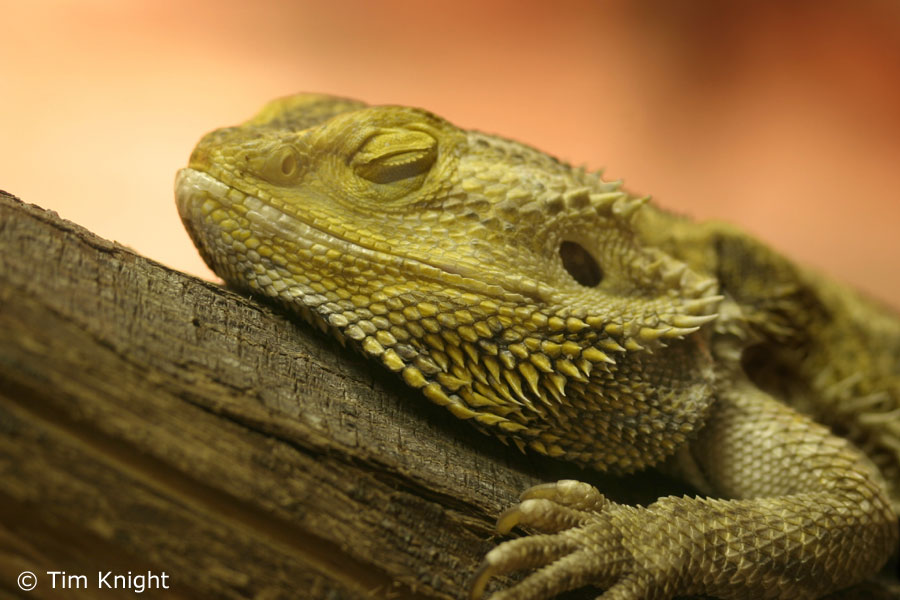The Ultimate Guide to Bearded Dragon Sleeping While Basking
Bearded Dragon Sleeping While Basking: What You Need to Know

Sleep is essential for any living creature, and this includes our bearded dragon pets. As a responsible owner, it’s important to ensure that your bearded dragon gets enough rest and sleep time. One of the common things you’ll notice about your bearded dragon is that they love to sleep while basking.
Bearded dragons are cold-blooded reptiles, which means they need external sources of heat to regulate their body temperature. Basking under a heat lamp or heat mat is one of the primary ways they do this. Not only does basking provide warmth, but it also is a vital activity for their mental and physical health.
How Much Do Bearded Dragons Sleep?

The amount of time a bearded dragon sleeps can vary depending on age, health, and environment. Typically, adult bearded dragons need around 12-14 hours of sleep per day, while younger dragons or those that are sick may sleep for longer periods. It’s essential to monitor your pet’s sleep patterns to ensure they’re getting enough rest.
It’s important to note that bearded dragons don’t necessarily sleep all at once. They may take short naps throughout the day while basking, and this is perfectly normal. If you notice your bearded dragon is sleeping more than usual or is lethargic, it may be a sign of an underlying health issue or a problem with their environment.
Why Do Bearded Dragons Sleep While Basking?

Bearded dragons typically sleep while basking for several reasons, including:
- It’s warm and cozy: The heat lamp or mat provides the perfect temperature for them to sleep in comfort.
- It provides security: Bearded dragons are prey animals in the wild, and they feel safe and secure when basking on a high perch.
- It’s convenient: Basking is a natural and essential part of their daily routine, so why not get some rest while doing it?
It’s normal for your bearded dragon to take short naps while basking, but if they’re sleeping for extended periods or aren’t waking up at all, it may be a sign of a problem. Make sure their environment is suitable for them, and their diet is balanced, and if you’re unsure, consult a veterinarian who has experience with reptiles.
Tips for Ensuring Your Bearded Dragon Gets Enough Sleep
Here are some tips for ensuring your bearded dragon gets enough sleep:
- Create a comfortable sleeping area: Bearded dragons need a dark, quiet, and comfortable place to sleep. You can provide a hiding spot or a sleep box to simulate their natural habitat.
- Stick to a routine: Bearded dragons thrive on routine, so try to stick to a regular feeding and sleeping schedule.
- Monitor their behavior: If you notice any changes in your bearded dragon’s behavior, such as sleeping more or being restless, it may be a sign of a problem.
- Avoid disturbing them: Bearded dragons may become stressed if they’re awakened abruptly or frequently. Try to limit any disturbances during sleep time.
- Ensure their environment is suitable: Bearded dragons need a warm and comfortable environment to sleep in. Make sure their enclosure is appropriately sized, and the temperature and humidity levels are appropriate.
- Provide a balanced diet: Nutrition is critical for your pet’s overall health, including sleep quality. Ensure they’re getting a balanced and varied diet.
In conclusion, bearded dragons sleeping while basking is a natural and essential part of their daily routine. As a responsible owner, it’s vital to ensure they’re getting enough rest and sleep time to ensure their mental and physical health is maintained. Follow the tips above, monitor their sleep patterns, and don’t hesitate to seek professional help if you’re uncertain.
